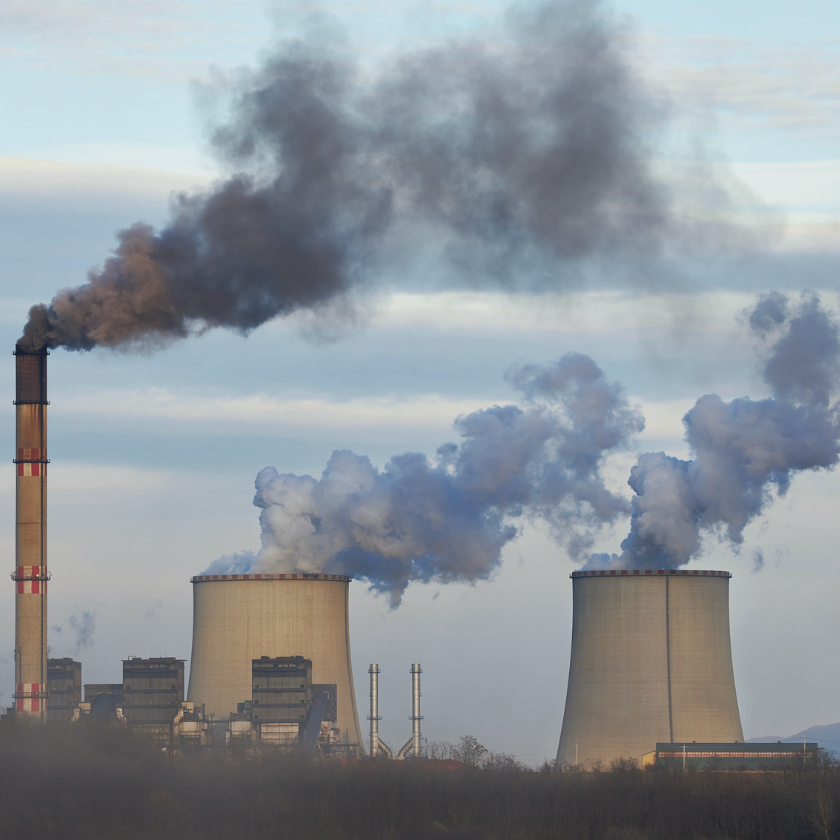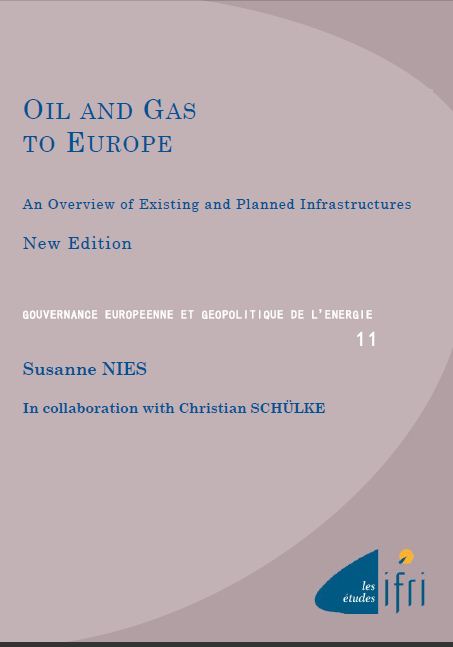Fossil Energies
The geopolitics of hydrocarbons - how are global balances changing, and what are the implications for Europe, emerging and rentier states, as well as for energy transitions?
Related Subjects


Oil and Gas Delivery to Europe: An Overview of Existing and Planned Infrastructures. New Edition
The European Union’s hydrocarbon energy supply depends heavily on imports. While the European Commission has recommended diversifying and increasing domestic resources, notably with renewable resources which should grow to 20% by 2020, dependence on hydrocarbon imports will remain not only substantial, but will increase.
Energy Security, Transnational Pipelines and China's Role in Asia
In recent decades, China's transformation from a regional energy supplier to one of the world's largest net energy importers, in particular with regards to oil and gas, has led to an increasing sense of energy insecurity in Chinese policy circles. Guaranteeing adequate supplies of energy to fuel economic growth is a central element in Beijing's efforts to maintain legitimacy in the face of economic reform and transformation. To combat energy insecurity a number of initiatives are being undertaken to diversify energy inputs, suppliers, and the means of their transport.
Caspian Pipeline Consortium, Bellwether of Russia's Investment Climate?
The Caspian Pipeline Consortium (CPC), a shipper-owned oil pipeline carrying Caspian oil to Russia's Black Sea port of Novorossyisk, remains to this day the only oil export pipeline on Russian territory that is not under the control of the state company Transneft. Completed in 2001, the CPC was, from the start, the product of a fragile balance of power between states eager to maintain control of hydrocarbon flows and private companies able to finance the necessary infrastructure. Despite its economic success, the future of the CPC currently hinges on a shareholding dispute pitting Russia against Western private shareholders. This essay places the CPC dossier in the broader context of Russia's investment climate and argues that the dispute's dynamic is an important bellwether of the Russian energy policy.
EU Gas Liberalization as a Driver of Gazprom's Strategies?
Russia and Gazprom's natural gas strategies on the European market are the result of the uncertainties (volumes, prices) created by the liberalization of the EU natural gas market. The company's policy of asset acquisition, begun at the end of the 1990s, the multiplication of export networks, as well as the desire to preserve long-term contracts while benefiting from new contractual opportunities are all clear illustrations of this strategy. Yet the industrial and commercial strategies that Gazprom may develop cannot discount geopolitical issues. Therefore, Vladimir Putin's desire to place hydrocarbons at the service of his economic and foreign policies, notably by making use of large, internationalized companies owned primarily by the state, remains in the background.
High Stakes in the High North: Russian-Norwegian Relations and their Implications for the EU
After the collapse of the Soviet Union, Norway embarked on a policy to overcome old dividing lines in the High North and encourage closer cooperation with Russia, its large neighbor to the east. In addition to being neighbors in the High North - an area that still plays an important part in Russian strategic designs - both countries are important global energy players and share interests in developing energy resources in the area. However, their energy cooperation is influenced by many historical and geopolitical factors and concerns, and their bilateral relationship is strongly influenced by a visible disparity of their respective potentials and by their historically determined perceptions of each other. To what extent their cooperation in the energy sphere will be influenced by these perceptions, and to what extent their energy related interests overlap or collide are a few of the questions addressed in this brief analysis of the developing Russian-Norwegian energy relationship, particularly in light of Gazprom's decision to invite StatoilHydro to join the Shtokman gas field project.
Rosoboronexport, Spearhead of the Russian Arms Industry
Rosoboronexport, a federal state unitary enterprise, is at the heart of Russian political power: it is the key pivot of the arms exports policy and of the ongoing consolidations of the Russian military-industrial complex (MIC). On behalf of its Director Sergey Chemezov, a close relation of President Vladimir Putin, Rosoboronexport has become the driving force for the renewal of Russia's military-technical policy, as it benefits from a quasi monopoly on arms exports. Through Rosoboronexport, the Russian state is seeking to modernize the Russian MIC - token of the country's power and influence on the international scene. In order to ensure the long-term success of its takeover operations of Russian industrial companies, Rosoboronoexport now needs to complete its transformation into an industrial holding company and strengthen its privileged position beyond the next Russian presidential elections to be held in 2008.
The Opacity of Russian-Ukrainian Energy Relations
Energy issues lie at the heart of Ukraine's economic, political and strategic challenges. A year after the 'orange revolution', the 'gas war' served to highlight the country's vulnerable position, being 80% dependent on imports of gas and having the world's most energy-hungry economy. The 2005 crisis also highlighted the extreme opacity of the country's bilateral relations with Russia, which are governed as much by the interests surrounding Gazprom's relations as by those of the state. Yanukovich's return to power in the summer of 2006 coincided with a relative appeasement of relations with Moscow and a new division of spheres of influence in the Ukrainian energy sector.
Gazprom as a Predictable Partner. Another Reading of the Russian-Ukrainian and Russian-Belarusian Energy Crises
The recent crises over oil & gas deliveries from Russia to Ukraine and Belarus have triggered alarm and virulent criticism in the West.
Gazprom, the Fastest Way to Energy Suicide
Russia is an unavoidable actor in world energy geopolitics. It is also the biggest energy partner of a European Union (EU) that is becoming ever more dependent on outside sources for its energy needs. However, the future of Russia's largest company-Gazprom-and the development of its future production capacities are at the center of a complex financial and political game dominated by numerous uncertainties, including Gazprom's actual reserves, its ability to invest in exploration and production, and its very capacity to develop production. Indeed, back in state hands, Russian gas and oil companies-Gazprom included-do not appear to be in a position to meet their future production commitments. Gazprom's ability to honor its contracts with gas companies in the EU is in fact already the subject of numerous interrogations.
Support independent French research
Ifri, a foundation recognized as being of public utility, relies largely on private donors – companies and individuals – to guarantee its sustainability and intellectual independence. Through their funding, donors help maintain the Institute's position among the world's leading think tanks. By benefiting from an internationally recognized network and expertise, donors refine their understanding of geopolitical risk and its consequences on global politics and the economy. In 2025, Ifri supports more than 80 French and foreign companies and organizations.







